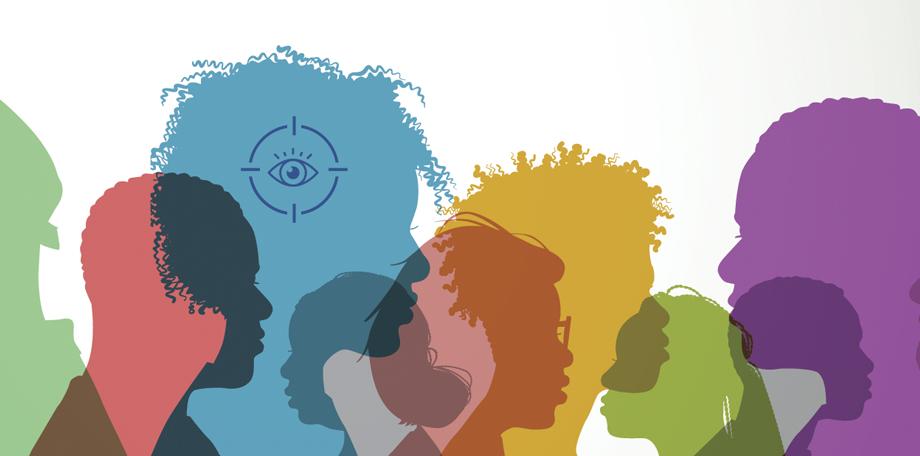Title: Can You Be Hypnotized and Not Know It? Imagine a soothing voice guiding you into a state of relaxation, the world around you fading away as your mind drifts into a realm of suggestion and possibility. Hypnosis—often depicted in fiction as a mystical art or sensationalized in stage performances—has long intrigued and bewildered both enthusiasts and skeptics alike. But what if this fascinating phenomenon could occur without your conscious awareness? In a world where the subconscious mind holds immense power over our thoughts and actions, the question arises: can one be hypnotized without realizing it? This article delves into the nuances of hypnosis, and certain signs you were hypnotized exploring the mechanisms behind this hypnotic state, the fine line between awareness and suggestion, and the implications it has on our daily lives. Join us as we unravel the mysteries of the mind and investigate the startling concept that you might just be under a spell—without even knowing it.

Understanding the Subtle Art of Hypnosis and Its Hidden Effects
Hypnosis often dances in the realm of mystery, intertwining deep psychological principles with layers of suggestion that can affect our thoughts and behaviors in subtle ways. Many individuals may experience a heightened state of focus during everyday activities, such as engrossing movies or captivating books, that mimic the trance-like state associated with hypnosis. In these moments, our subconscious can absorb messages without our conscious awareness, leading to the intriguing possibility that we may be susceptible to suggestion without even realizing it.
Exploring the hidden effects of hypnosis unveils a fascinating tapestry woven from various psychological threads. Here are a few potential manifestations:
- Enhanced Creativity: Many experience spurts of creativity after sessions, often unaware of the hypnotic influences at play.
- Behavioral Changes: Subtle shifts in habits, such as reduced cravings or increased motivation, can silently emerge post-hypnosis.
- Improved Focus: Some report heightened concentration on tasks, which can be attributed to a deeper subconscious engagement.
To further illustrate the unintentional effects of hypnosis, consider the table below that outlines possible scenarios where one might unknowingly experience hypnotic suggestions:
| Scenario | Hypnotic Effect |
|---|---|
| Your favorite song playing on repeat | Increased emotional connection triggered by lyrical suggestions. |
| Following a motivational speaker | Adoption of positive affirmations without conscious decision-making. |
| Watching a persuasive advertisement | Subconscious inclination to purchase based on suggestive cues. |
These examples illustrate that hypnosis can extend beyond clinical settings into everyday life, highlighting how we can be influenced quietly without our explicit knowledge. As we navigate through these experiences, understanding our susceptibility can empower us to harness the benefits of suggestion for positive growth and change.

The Fine Line Between Awareness and Unconscious Suggestion
Exploring the territory between conscious awareness and unconscious suggestion unveils a fascinating layer of human cognition and behavior. It’s often said that we are not fully aware of the influences that shape our thoughts and actions. When it comes to hypnosis, this can manifest in surprising ways. Hypnotism can be seen as a powerful method that taps into the subconscious mind, allowing suggestions to take root without our explicit awareness. Some people, though skeptical of its efficacy, may find themselves responding to hypnotic cues while believing they are fully alert and in control. This phenomenon raises questions about the extent of our awareness during hypnotic states and whether our perceived control is merely an illusion.
A critical component in understanding this intricacy involves recognizing how suggestions can be subtly woven into our daily experiences. For instance, when we encounter repetitive messages in media or conversation, our subconscious can internalize these messages without our conscious consent. This intersection can be exemplified by various situations, such as:
- Advertising: Brands often use subliminal messages that resonate on a subconscious level.
- Peer Influence: Social groups may sway your opinions or habits without overt persuasion.
- Therapeutic Techniques: Certain therapies can influence thought patterns, sometimes in a non-directive manner.
In essence, the line separating being aware of a suggestion and unknowingly accepting it can blend seamlessly, creating a complex web of influence that shapes our decisions. Understanding this can be empowering, as it highlights the need for critical thinking and self-awareness in navigating a world rife with suggestions both conscious and unconscious.
Recognizing Signs of Unconscious Hypnosis in Daily Life
Throughout our daily lives, we often encounter moments that may indicate we are slipping into a state of unconscious hypnosis without even realizing it. This natural phenomenon can manifest in various forms, subtly influencing our thoughts and behaviors. For example, consider how you might find yourself lost in a book or a movie, completely absorbed in the narrative. During these captivating moments, you might experience a shift in perception, where time seems to fly by, and your surroundings fade into the background. Such instances highlight how easily our minds can be entranced, allowing our subconscious to take the reins.
Here are some common signs that suggest you may be experiencing unconscious hypnosis:
- Daydreaming: Losing track of time while your mind wanders.
- Routine Tasks: Performing activities, like driving or cleaning, on autopilot.
- Emotional Responses: Sudden feelings triggered by music or art that transport you emotionally.
- Hypnotic Speech: Being captivated by a speaker’s tone or rhythm, making you more receptive to their message.
Recognizing these signs can lead to a greater understanding of how much our subconscious mind influences us. Here’s a simple table illustrating how some triggers can lead to unconscious hypnosis:
| Trigger | Hypnotic Response |
|---|---|
| Repetitive Music | Feeling entranced and reflective |
| Rhythmic Speech | Increased suggestibility and focus |
| Visual Patterns | Altered perception and awareness |
Empowering Yourself: Techniques to Enhance Hypnotic Awareness
Many people ponder whether it’s possible to undergo hypnosis without being fully aware of the process. In reality, our subconscious mind constantly processes information and experiences, sometimes even beyond our conscious perception. By cultivating your awareness and understanding of hypnotic states, you empower yourself to engage more effectively with this fascinating phenomenon. Consider practicing the following techniques:
- Mindfulness Meditation: Regular practice can sharpen your focus and enhance your ability to recognize altered states of consciousness.
- Journaling: Documenting your thoughts and experiences can help uncover moments of subconscious influence in your daily life.
- Visualization Exercises: Engaging in guided imagery can deepen your awareness and allow you to explore hypnagogic states.
It’s essential to understand that hypnosis is a natural mental state that many experience without realizing it. Moments of daydreaming, deep focus, or absorbed engagement in tasks can all be forms of light hypnosis. To help illustrate this concept, here’s a simple breakdown:
| State of Mind | Example |
|---|---|
| Focused Attention | Deeply engaged in a book |
| Dissociation | Spacing out during a conversation |
| Relaxed Awareness | Drifting off before sleep |
By refining these skills and recognizing subtle shifts in your awareness, you not only enhance your understanding of hypnosis but also increase the potential for personal transformation. Embracing these techniques allows you to navigate altered states more consciously, leading to greater empowerment and insight.
Q&A
Q&A: Can You Be Hypnotized and Not Know It?
Q: What exactly is hypnosis?
A: Hypnosis is a trance-like state of focused attention and heightened suggestibility, often accompanied by deep relaxation. It can be induced by a trained professional or through self-hypnosis techniques. Contrary to popular belief, hypnosis is not a form of mind control; instead, it relies on the subject’s willingness to engage and the practitioner’s guidance.
Q: Is it really possible to be hypnotized without realizing it?
A: Yes, it is possible to be hypnotized without fully recognizing it. Everyday experiences, such as being absorbed in a movie or daydreaming, can induce a hypnotic state. In these moments, you might not be aware of the subtle shifts in your awareness or the suggestive messages that influence your thoughts and behavior.
Q: How can I tell if I’ve been hypnotized?
A: Recognizing a hypnotic state can be tricky. If you find yourself losing track of time, experiencing a lapse in memory, or feeling particularly open to suggestions, you may have entered a hypnotic state—albeit unintentionally. Physical signs can include relaxation of the body or a sense of detachment from your immediate surroundings.
Q: What are some scenarios where someone might be hypnotized without knowing it?
A: Everyday scenarios abound. For instance, during a captivating lecture, you may find your concentration so intense that you tune out everything else—essentially a state of focused trance. Likewise, certain therapeutic practices, such as guided imagery or meditation, can also lead to a state of hypnosis without you being aware of it.
Q: Can you be hypnotized against your will?
A: No, hypnosis requires a level of cooperation and consent. Even if someone attempts to hypnotize you, the effectiveness hinges on your willingness to engage in the process. If you resist or are skeptical, it’s highly unlikely that you’ll enter a hypnotic state.
Q: What are the implications of being hypnotized without realizing it?
A: Being hypnotized unknowingly could lead to changes in your behaviors or perceptions, often for the better—like increased relaxation or greater receptivity to positive suggestions. However, it can also mean that certain suggestions could influence you in unexpected ways, such as adopting a habit you didn’t consciously intend to.
Q: How can I protect myself from unintended hypnosis?
A: Awareness is key. Keeping your mind alert and critical when confronted with persuasive messages—whether it’s in media, advertising, or even conversations—can help you maintain a clear sense of self. Practicing mindfulness can also help you cultivate a deeper understanding of your thought processes, ensuring that you consciously engage with suggestions rather than passively absorbing them.
Q: Can I learn to use hypnosis intentionally?
A: Absolutely! Learning self-hypnosis techniques can be beneficial for personal development, stress relief, or achieving specific goals like improved focus or breaking bad habits. Professional hypnotherapy sessions can also provide guidance on how to intentionally use hypnosis to harness its potential for positive change.
Q: What should I take away from this discussion on hypnosis?
A: While it is indeed possible to be in a hypnotic state without realizing it, understanding the nature of hypnosis and its implications can empower you. Through awareness and intentionality, you can harness the benefits of hypnosis, ensuring that your experiences are aligned with your conscious desires and objectives.
Insights and Conclusions
As we draw the curtains on this intriguing exploration of hypnosis, we find ourselves at the crossroads of consciousness and suggestion. The journey through the realms of the mind reveals not only the mysteries of hypnotic states but also the profound depth of our own awareness. Can someone truly be hypnotized without their knowledge? Perhaps the answer lies in the subtle interplay between the familiar and the unknown, where moments of suggestibility dance just beneath the surface of our everyday lives. This contemplation opens doors to a wealth of questions about the nature of perception, the fragility of awareness, and the power of suggestion. While some may dismiss the phenomenon as mere illusion, others may uncover threads of genuine experience woven into the fabric of their memories. Whether you emerge from this read as a skeptic or a believer, the exploration of hypnosis beckons us to delve deeper into our understanding of the mind—an expedition both timeless and timely. As you venture forth, consider what lies beneath the surface of your own consciousness. In a world where the line between the known and the unknown often blurs, perhaps the greatest mystery of all is not just whether you can be hypnotized, but how attuned you are to the whispers of your own mind.
Dr. John Renoldson is a distinguished professor of Clinical Research Hypnotherapy He holds a PhD in Clinical Psychology and specializes in hypnotherapy and scientific research to enhance therapeutic outcomes. Dr. Renoldson has authored numerous peer-reviewed articles on the efficacy of hypnosis in treating conditions.




